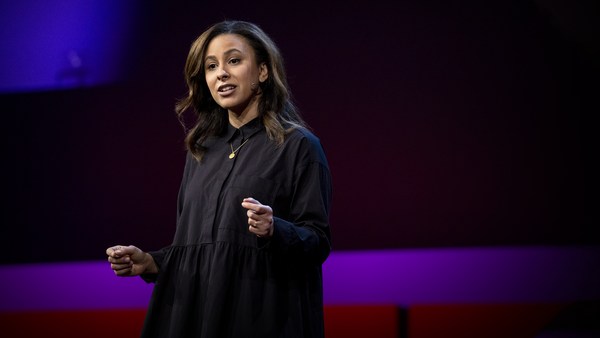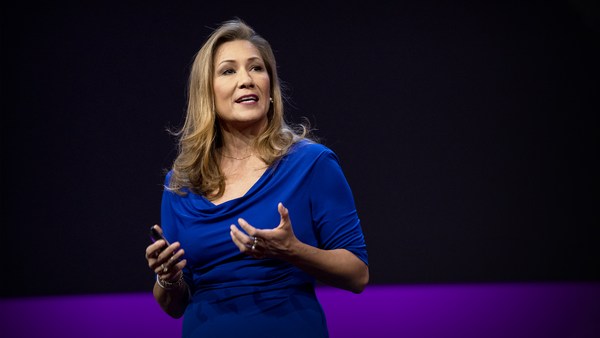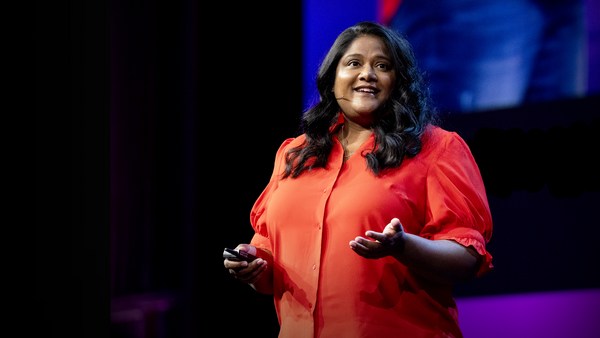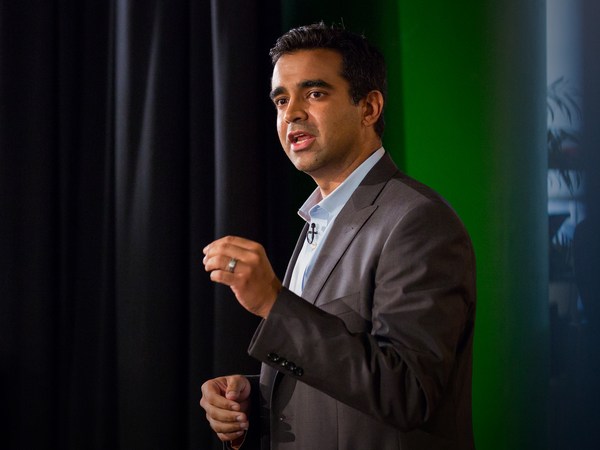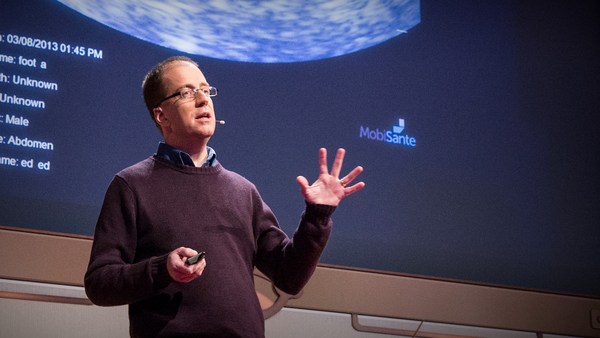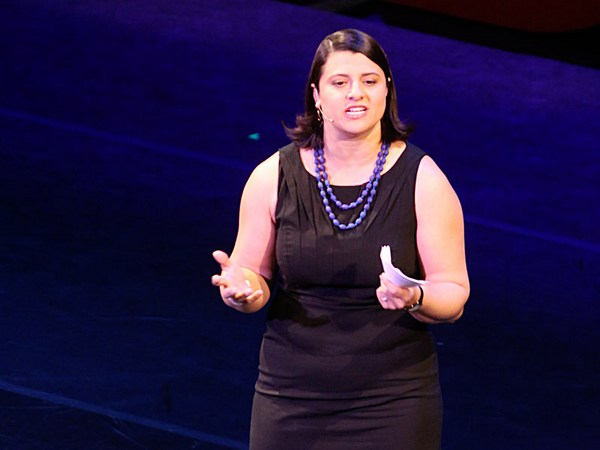Shahed Alam: In the fall of 2021, I arrived in the US to visit my parents after almost two years of not seeing one another. I was coming from my home in Bangalore, in India, where we were just getting out of a devastating second wave of the pandemic. Within weeks of my arrival, first my father, then me, then my mother, all came down with COVID. And it hit us hard. My parents' age and their medical conditions threatened to make each day more severe than the last. And despite my medical training, I was overwhelmed. It was a nightmare, one, I'm guessing, many of you all have faced. I tried to get them tested at sites that were booked for days. We called their doctors who were unavailable. We tried to get monoclonal antibodies, knowing that with every day that passed, that treatment became less effective. And this was all while just trying to figure out what to eat and how to make them feel better. Thankfully, we all recovered. But I'll never forget the depths of how alone and helpless I felt. And my desperation to do anything I could to help.
Edith Elliott: Like Shahed, and I'm guessing everyone in this room, at some point in your life, you've been in the position of wanting to do whatever you can to take care of someone you love. We're here to talk to you about how our organization, Noora Health, is rethinking health care. And yes, we have nearly a decade's track record, we're driven by data and we leverage technology. But at the heart of what we do is a powerful force that might surprise you. It's love. It’s that dogged determination to get your aging mom’s meds sorted out; that tenacious energy to get your kid to the ER. Like oxygen, it is essential to our health and our well-being. It is ever present, but invisible. It's the fuel of family advocacy. And for too long it's either been seen as a nuisance or it's been ignored altogether within health care settings.
When Shahed and I met, we connected over many things, but we founded Noora on the shared belief that love is the most powerful, untapped resource available. And when valued and made visible, it can transform health systems.
SA: We work in India and Bangladesh. When you stand outside one of the hospitals where we work, the first thing you'll notice is the crowd. When you walk in, you may see patients doubled up on beds, and you'll see hallways and waiting areas filled with families and their belongings because they've moved to the hospital to be there with their loved ones. Families are spending their time anxiously waiting while providers are doing the best that they can to keep up with the intense demand. And we know this will only get worse. Globally, there will be a shortage of nearly 18 million health care workers by 2030.
The systems are overburdened and this has life and death consequences for patients. Every year in South Asia alone, nearly 1.5 million children under five die. And far too many of these deaths can be prevented with better health practices at home. At Noora Health, we train and we support families with life-saving skills. We work with hospitals and clinics to meet people where they are, at the patient's bedside, in the hallways, in the waiting areas. We train nurses so that they can run sessions with groups of families to teach them actionable skills. Things like wound care and how to recognize warning signs, like jaundice in a newborn or slurred speech for a cardiac patient. And they leave plenty of time for questions and demonstrations. Once families leave home, we stay connected with them, sending them messages, videos and reminders that are relevant for their loved ones, and we're on the other side to answer any questions. So whether it's new parents, surgical or oncology patients, we've seen that this approach works across all types of care. Because the common thread is that loved ones are there, and they want to help.
EE: Along the way, we've learned a few things. First, deep listening is key. Nurses, patients and families have guided us. They are the visionaries. They make sure our trainings incorporate objects that people have in their homes, visuals that people see in their communities, and words and phrases that people actually use instead of complex medical jargon.
Second, trust and timing are fundamental to behavior change. Nurses and health care providers are the people families trust. So we work with them to provide the training at a time and in a place where families need it most.
Third, you do not have to start from scratch. We're not creating new systems, we’re building with and through existing infrastructure. Yes, Noora is there to kick-start and support, but the trainings are designed and introduced in a way that ensures they will continue to run sustainably. So far we've reached hundreds of hospitals and clinics across India and Bangladesh, and we've helped them change the way they deliver care. We’ve trained over 5,000 nurses, and we've reached over two million family caregivers.
(Applause)
We have seen that this program reduces cardiac surgery complications by 71 percent, and our early data suggests that it reduces newborn deaths by 18 percent.
(Applause)
That would mean that over nine babies' lives are saved for every 1,000 live births. And it's all happening at an extremely low cost because the solution leverages existing resources.
SA: I had the chance to meet Bino. He's a young man who had heart surgery at the nearest major hospital to him, which was in Kolkata. He was accompanied by his wife Sunita and his uncle, and both of them went through the training. Later on, when I visited them in their home, Sunita had just wrapped up Bino's wound care, commenting how she left it undressed, just like in the training. She showed me how she used the thermometer and how she checked Bino's pulse and rattled off all of the normal ranges for blood pressure, heart rate and temperature. She told me that they eat more fish now instead of red meat and avoided foods with too much vitamin K because of his new medication. His uncle told me that they were able to avoid going to the local clinic every single time they needed to do basic wound care. This saved them travel and also a dollar-fifty per visit. This is a huge amount for a family that had to sell a part of their property to finance the operation. Now Sunita never got the opportunity to learn how to read or write, but hundreds of kilometers from the nearest major hospital, she confidently led Bino's recovery.
EE: We are heartened by stories like Bino and Sunita's. We have only scratched the surface. Our audacious idea is to ignite a family caregiver movement that will revolutionize the way we experience health care. Over the next six years, we will train over 70 million family caregivers across India, Bangladesh, Indonesia and Nepal, supporting health systems that provide care to over one billion people.
(Applause)
But Noora can't be everywhere. And our ultimate dream is for health systems around the world to take what we've learned and make it their own, to include caregivers, make them a part of the health care team, give them confidence, skills, training. That should be standard practice. It's almost too obvious, but we are not there yet. And that is our collective call to action.
SA: In every caregiver that we train, I see the triumphs and the struggles of my mother caring for my grandmother through a debilitating neurological condition. She was the most powerful steward of my grandmother's care, yet seemingly invisible in the system.
EE: And I see my 13-year-old self helping my mom as she recovered from brain surgery and relearned how to walk and talk and feed herself. To this day, we carry the intimate understanding of that responsibility, the deep pride and the relief that comes with being part of someone's healing. At its core, this work is about honoring one of the most ancient human practices, helping those we love. And it's about seeing compassion and community as essential medicines. Just imagine a world where no matter who you are or where you're from, you know exactly how to take care of your loved ones and where you are seen and acknowledged for this essential work. We see every day that this is possible, and that in order to change health care, it takes a family.
Thank you.
(Applause and cheers)
